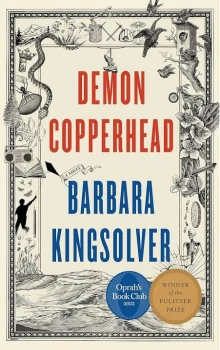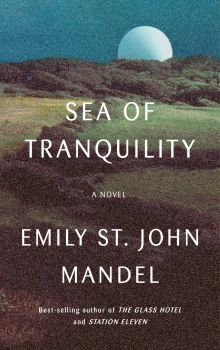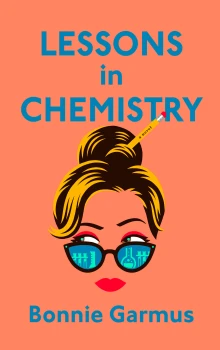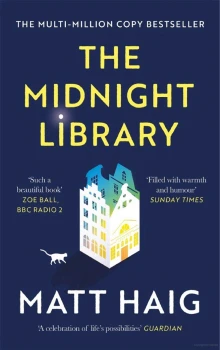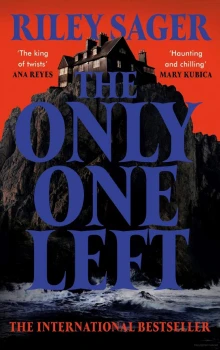They wake up, stiff-necked and cold, and look at the darkened hearth, then at each other.
It doesn’t matter, Sadie says quickly. It doesn’t count. It’s almost daytime now.
She says this with all her old brash confidence, but he knows she needs him to agree.
He nods. It’s okay, he says.
Outside the roar of the storm has stilled. The silence swells and echoes, their ears gradually adjusting to the absence of sound. Now the taps of the slowing rain are discrete, fingers drumming. Instead of an indistinguishable blur, they can make out individual sounds. There is a single drip of rain pattering against the window. There is the single ping of a drop clanging against the gutter like a bell. There, suddenly, is a single bird testing the predawn air, then another bird answering its call.
Though it’s still dark, they eat the last of the cereal for breakfast, because even at the end of the world, they think, these things make them feel more prepared for whatever is to come. Then, without discussing it, they take up their posts on the front steps, though they still are not sure what they are waiting for. The sky is just beginning to lighten. After yesterday’s storm the air feels clean and crisp, the birds shouting at each other from the trees. The rain-damp world seems two shades darker—the rocks changed from pale buff to dark gold, the dirt from gray-brown to near-black—but everything is still here. A squirrel climbs, fusty-eyed, out of its hole, dangles by its rear feet, and stretches itself languidly, first one side, then the other. At Bird’s feet an industrious pair of ants lifts a crumb that’s fallen from his breakfast and begins the long awkward journey back to the nest.
Perhaps it is possible. Perhaps everything is fine, there was just a delay, perhaps Margaret and Domi are on the way to them, safe and sound and triumphant.
I hear them, Sadie says, jumping to her feet.
She’s right: they both hear it, a car crunching up the long gravel drive through the woods. From the front step, they watch it approach. The Duchess’s car, so urban and oddly incongruous here, a thin bright bullet boring through the forest in slow motion. It comes slowly, almost reluctantly. Sadie takes Bird’s hand, or Bird takes Sadie’s hand, they aren’t quite sure which, and they watch the car make its way to the cabin with agonizing slowness. As it nears they can see two figures in the front, though through the tinted glass they can’t make out the faces, only a shadowy shape on the passenger side, another at the wheel. Then it comes to a halt and the engine dies and the passenger door opens, but it isn’t her, it’s a man, a tall body unfolding itself and turning toward them, and Bird makes a choked sound of recognition. It is his father, the Duchess grim-faced behind the wheel, and they know something has gone terribly wrong.
Dad, Bird cries. Dad. But no sound comes out. Beside him, Sadie begins to cry.
And as if his father has heard him anyway, his father runs to him, runs to them, folds them both in his arms.
She’d waited, the Duchess—waited in her gilded townhouse through the evening and well into the night, waited for Margaret to arrive. As soon as you think they’ve pinpointed you, she’d said. Don’t wait, M. Just get out, before they have time to reach you. Don’t cut it close—you always get carried away. And Margaret had agreed.
And then she’d kept speaking, kept on going, past the point where Domi had expected her to stop, past the point where it seemed prudent, then past the point where it seemed safe, then past the point where it seemed possible. By the time it was clear Margaret wasn’t coming, that something had gone wrong, the sky had circled from light to dark and was beginning to grow light again, and she got in the car and headed for Brooklyn. Margaret’s voice had nearly gone out, the authorities finding and crushing speaker after speaker as they slowly spiraled toward her, but as Domi crossed the bridge, a few minutes after three, there it was again: her old friend, louder now, more distinct, through the speakers they’d missed or not yet found, as if now that she was closer her words came more clearly. Telling the stories that those who needed to tell could not say, now grieving, now angry, now tender, a thousand people shouting through her mouth.
But blocks away she knew things had gone wrong. Suddenly it was eerily silent. The roads were blocked off, starting from Flushing Avenue; she couldn’t even get in sight of Fort Greene Park. A cordon of police cars, sirens off but lights flashing, surrounded the whole area, and she turned down a side street and headed home. She already knew what they were there for, and that they’d found it. Still, she waited, watching her phone, still hoping that the screen would light up and it would be Margaret, calling from somewhere, anywhere, to say that she was all right.
When the phone finally did ring it was well into morning, and it was the call she’d expected, and she was ready. Yes, she owned the property in question—what had they found inside? No, a complete shock and quite an outrageous one, as they could probably imagine. No, she had no idea how—well, wait a moment, there was a keypad at the back; whoever this woman was must have managed to open it and work her way inside. What did they say she’d been doing? Absolutely horrifying. No, she never went there herself; her father had bought it during the Crisis intending to renovate it, but it had never happened and he’d passed and it had been sitting there empty ever since. In fact it was a rather upsetting place for that reason; she never liked to go there but hadn’t been ready, yet, to sell it. Claude Duchess, his name was—yes, like the tech company; that was their family. Why yes, of course, she would make it more secure going forward; she would add an alarm system, hire security to keep an eye on it. Given everything happening these days, you really couldn’t be too careful. If the authorities could let her know when they’d finished their work . . . ? They were too kind; she so appreciated the service they provided, watching over the community—and this reminded her, she’d been meaning to make a donation to support the officers in their duties. No, no—thank you.
In the meantime, she was searching. Margaret hadn’t told her much, but the few scraps she already knew were enough. It was surprising how much you could track down with just a name, if you asked the right people. Ethan Gardner led her to Harvard, then to the library staff payroll, and then, eventually, to what she needed: a Cambridge address, one of the dorms. No phone number, but of course she couldn’t risk a call anyway. It took her nearly five hours to reach Boston, traffic clotting as the afternoon turned to evening, stalling outside of Stamford, then New Haven, then Providence. By the time she reached Cambridge it was just past four, and she parked outside the dorm, waiting. Maybe she’d missed him already, perhaps he didn’t work Friday, perhaps he’d already come home from work or he had never left or she was in the wrong place, and she had driven all that way for nothing. She nearly gave up. But finally, just after nine, there he was—a little older, a little grayer, but the same face she remembered from all those years ago. Dressed the same, even: a tucked-in pale blue oxford, a corduroy blazer. She couldn’t understand it, at the time, what had fascinated Margaret so, but she thought she saw it now, the softness in him, the promise that there could be gentleness in this world.
As he passed by, she stepped out of the car.
Ethan? she said, and he turned, startled. Uncertain. Scanning her face for something familiar.
It’s Domi, she said, and watched recognition flood his eyes. I’m here about Margaret, she said, and then, before he could speak, she added: And Bird.
He’d come home to an empty apartment that Monday, and his chest had seized. So it had happened, he’d thought in a panic: despite everything, they’d taken him at last. Noah, he called out, flicking on the lights in the living room, then the bedroom, circling the apartment again, as if Bird were a misplaced key he’d simply overlooked. Only then did he see the note on the table, the drawing, the scrap of paper reading New York, NY. After all these years, he still recognized her writing, quick and pointed and sure, and he understood.
He could not call the police: as soon as they began to investigate they would see the link to Margaret, they would dig gleefully into Margaret’s file, and begin one on Bird. He could go to New York, but then what? All he could do was wait. If Bird found Margaret, he assured himself, they’d contact him. He did not allow himself to think and if not?
Tuesday morning, he called Bird in sick from school; he called himself in sick from work. If Bird came back, he would be there. He spent the day pacing the apartment, picking up his dictionaries, setting them down again. Again and again he looked at the drawing Margaret had sent: the cats, the cabinet. What had this told Bird? At dinnertime he forgot to eat. Where was Bird? Had he found Margaret? And if he hadn’t—? That night, half dizzy, he dreamed himself back in his old apartment with Margaret, the Crisis still whirling around them. In the morning, woozy and sleep deprived, he awoke alone, below Bird’s empty bunk, and he called them both in sick again. Exhausted, he half dozed over and over; each time, he woke certain he’d heard Bird’s voice, but no one was there.
Friday morning, he headed back to work: he was out of days off. In the library, he wheeled his cart through the stacks, taking extra time to line up the books with care, to restore everything to the precise place it belonged. When his shift was over, he lingered, dreading the empty apartment. Instead he headed to the southwest corner of D level, combing the shelves until he found it: the thin book with a cat on its cover, and a boy who looked something like Bird.
This retelling, he discovered, was different from Margaret’s. In this version, the parents had too many children, the boy was sent off to study with priests, the building was not a house but a temple. Perhaps she’d misremembered, or maybe she’d changed the story to suit her own purposes. Or maybe, he thinks, there were simply many versions of this single tale. What did it tell Margaret and Bird that it did not say to him? He read it again and again, until the library closed, looking for the message, for the clue that would unlock everything and tell him where his family was. But the book revealed nothing.
He was still thinking this over as he walked home in the darkness. Whatever the meaning, it was not in the words themselves but somewhere else, and it was then that Domi had stepped out of her car and called his name.
In the small hours, they drove back toward Connecticut, the traffic evaporated, everyone home with blinds drawn. In some places the streetlights were already winking out, but in Domi’s car, they sped along the highway, frictionless. For long stretches theirs was the only car in sight, and they glided through the darkness in the small bubble of light cast by their headlights. As if there were nothing and no one else left in the world. For a long while Ethan didn’t speak at all, and Domi, as if to fill the silence, chattered away. She had told him the most urgent things already, of course: what had happened to Bird, about the townhouse, the plan. Where they were headed. With these most pressing things covered, though, she found herself coming back to the smallest of details. How Margaret had looked when they’d first seen each other again. I could tell, Domi said, I could tell she’d been happy with you. In the life she’d had. Because she was so sad to lose it. You could see it in her eyes.
She described it all for Ethan, as best she could: Margaret’s notebooks, her journeys from one family to the next, until he could almost see it, her tracks like fine lines of stitching crisscrossing the map, trying to suture something torn asunder.
You should’ve heard it, Domi said, you should’ve seen it, her voice just—
She waved a hand in the air, and the car wavered over the yellow line and back again.
Just coming out of the air. Everywhere. And people standing there, listening. I looked out the window and I saw them, just standing. Like statues. It was like she’d turned everyone to stone.
Except, she thought—and this she could not bring herself to say aloud, would never manage to utter—except that some of those stone people were crying. She held on to this fact, even when the authorities came and searched out the speakers and smashed them under boot heels, even when they ordered the crowds to disperse, even when there was nothing left to see from the window but an empty sidewalk and a few strands of wire and plastic shards on the concrete. Those vanished people had wiped their tears and retreated back into their lives, but those tears had been there all the same, even for a moment, and she told herself that this meant something, that this mattered.
He’s a good kid, she said instead. Bird. He’s a sweet boy.
After a pause, she added, He looks so much like her. Like both of you.
He does, Ethan said, and then they both fell silent again, and outside the road scrolled by, luminous in the reflected shine of their headlights.
It was like Pompeii, one person would say later. Everyone just frozen exactly where they were. You just stood there and let it wash over you. Destroying and preserving you all at once.
Another would carry that moment through her life, and years later, in the Natural History Museum with her daughter, she would glance at the dioramas, the animals so lifelike you could imagine they’d only paused, like burglars caught in a searchlight, that as soon as you turned your back, they would reanimate and scamper off on their way. She would look at that diorama—a lion crouched beside a herd of grazing antelope, the painted savannah air wavering behind them in a honeyed sheen, jackals prowling in the shadows, all of them, predator and prey, transfixed by some invisible force—and she would suddenly remember that evening, as the light dimmed, the voice speaking to all of them, that feeling of being surrounded by strangers who were somehow experiencing the same thing. She would remember the man on the park bench opposite—grizzled and hard, wearing fatigues that didn’t fit, slashes of gray sock in the gaps between shoe top and sole—the way his eyes and hers had met, the unspoken affirmation that had passed between them: Yes, I hear it, too. She would never see that man again, but standing there in the museum she would remember him, remember that feeling that somehow he was important to her, that they were connected and they’d found each other, that feeling of being conjoined by this surreal moment in time, and she would be frozen again, captivated, staring past the lion and antelope and into the past until her daughter tugged at her hand and asked why she was crying.
I just don’t understand, Domi keeps saying. Scrubbing her eyes with the heel of her hand, yesterday’s eyeliner smudged to angry dark rings. Sadie’s head cradled against her shoulder. Why she cut it so close. We talked about it. She promised. I thought she meant it.
You know Margaret, Ethan says. Now and then, she got carried away. A wild thing.
He and Domi share a pained laugh, everything they found exasperating about her become precious.
They are speaking about her in the past tense, Bird thinks, and he almost smiles at how childish and shortsighted this is. They are so certain that she is gone, but he’s not. I promise I’ll come back, she had said, but he realizes now: she hadn’t said when. Only that she would. And he believes this, still. She will come back. Someday, somehow. In some form. He’ll find her, if he looks hard enough. Strange things happened. She might be there, somewhere, in some other form, the way it happened in stories: disguised as a bird, a flower, a tree. If they look closely enough, they’ll find her. And as he thinks this, he thinks he might see her: in the birch tree showering its leaves ever so gently down upon them, in the hawk that sails into the sky, releasing its piercing and melancholy and beautiful cry. In the sun that has begun to needle its way through the trees, tinting everything with a faint golden glow.
What now, he says. But already he knows the answer.
What happens now is a choice: they can go back, all of them, to the lives they’d had before. Bird and his father can go back to Cambridge, back to school and replacing books on their locked-up shelves. They can pretend this never happened; they can still say, no, we don’t know her, we haven’t heard from her in years. We have nothing to do with her, we had nothing to do with it, of course we would never, of course we don’t think like that. As for Sadie: the Duchess assures them she can find somewhere safe, but from the look on Sadie’s face Bird knows what will happen—she’ll run again, she’ll keep running, the way she had before she found Margaret, she’ll keep searching for her own parents, for a way out of all this, and she’ll be gone. So they will all go back to the way they were before, as if none of this has ever occurred, as if it changed nothing, as if it meant nothing.
Or: they can go on. They can keep looking—for Sadie’s parents, for the families who’ve lost children, for the children themselves. For Margaret, perhaps still out there, somewhere, though none of them dare to voice this, even in their minds. They can keep collecting stories, finding ways to share them. Finding ways to pass them on and remember them. They will have to conceal themselves, the way Margaret has all these years, slipping through shadows, moving from kindness to kindness. Listening and gathering. Refusing to let things die. They can let what Margaret has done change them, they can make it change things. They can keep rolling this stone uphill.
Somewhere, maybe, someone is telling someone else: Listen, this crazy thing happened the other night and I can’t stop thinking about it. Days later, weeks even, Margaret’s voice still lodged in the crevices of their brain, the stories they’ve heard a pin completing a circuit, lighting up feelings that have long lain dark. Illuminating corners of themselves they hadn’t known. Listen, I’ve been thinking. Eight million people, all those stories passing from mouth to ear. Would one person be compelled? One out of eight million, a fraction of a fraction. But not nothing. Absorbing that story, passing it on. Listen. Somewhere, out there, saying to others at last: Listen, this isn’t right.
None of them are sure how this will work, where they will go, how they will find their way, but it is not impossible, and right now that feels like enough.
Before they leave, Domi catches Bird by the hand.
I wish you could’ve heard it, she says. Her face puffed and pink, swollen with the weight of what she carries. I wish you could have heard her.
And someday he will hear: one day, he will meet someone who, on hearing his story, will say slowly, I remember that, I was there, I’ll never forget—who will recite it for him, the very last bit of his mother’s broadcast, the one story she did not read but spoke, directly, in her own words, will recite it nearly word for word, because it has been rooted inside them ever since they heard it, all those years ago, that night when out of nowhere, out of everywhere, a voice began to speak into the darkness, carrying messages of love.
Now Domi says: Her poems.
All those years ago, she says, I went to the bookstore and there was your mother’s book on the table. I knew she’d write one, one day. I bought it on the spot and read it in one sitting. We hadn’t spoken in years. I hated her for a while, you know, I really did. I didn’t think I’d ever see her again, until she showed up at my door. But they stuck with me, those poems; I could hear her voice when I read them. I kept thinking about everything we’d lived through. It made me think of who we’d been, back then.
Bird holds his breath. Could it be, he thinks. That she still has it. That she’ll take it from her bag and press it, battered and worn, into his hands.
But Domi shakes her head.
I burned it, she says. When they started to go after her. No one knew I had it and maybe no one would ever have known but I did it anyway. I was a coward. That’s what I’m trying to tell you, Bird: I’m sorry. It’s gone.
Tears clot in Bird’s throat. He nods, and begins to turn away. But Domi is still speaking.
There was one poem, she says, speaking softly, almost to herself, as if she is trying to remember an almost-faded dream. One poem that just—
She rubs the spot between her collarbones, as if the punch of the poem still lingers there.
I read it over and over, you know. Because it kept saying something I felt but couldn’t hold on to and the words there made it solid, just for a second, while I was reading. Do you understand what I’m saying?
Bird nods, though he’s not sure he does.
I think, she says, I think I could write it down for you. The poem, I mean. I might get a word or two wrong. But I think—I think—I still know most of it. Would you like that?
And he understands, then, how it’s going to go. How he’ll find her again. What he’s going to do next, alongside everything else his life will bring. Somewhere out there are people who still know her poems, who’ve hidden scraps of them away in the folds of their minds before setting match to the papers in their hands. He will find them, he will ask them what they remember, he will piece together their recollections, fragmentary and incomplete though they may be, mapping the holes of one against the solid patches of another, and in this way, piece by piece, he will set her back down on paper again.
Yes, please, he says. I would like that, very much.

